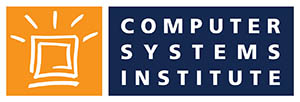The job market continues to evolve rapidly, shaped by technological advances, shifting economic priorities, and societal changes. Students and job seekers must stay informed about which career paths are expanding and where opportunities are abundant.
Several industries are standing out in 2025 for their potential to offer rewarding and dynamic career opportunities. From technology-driven roles to health care specialties, these trends reflect how industries are adapting to global needs.
By understanding these trends, aspiring professionals can align their skills, education, and career paths with fields projected to thrive. Detailed below are six of the top industry career trends that show promise in 2025 and how students can prepare for these roles.
1. Technology and Artificial Intelligence
Few fields offer the combination of innovation and impact like technology. Artificial Intelligence (AI) solidifies its position as a key driver of change across industries. With AI transforming everything from customer experiences to supply chain logistics, there’s immense demand for skilled professionals who can design, implement, and manage these systems.
Career opportunities in AI extend beyond programming and development. Data scientists, machine learning engineers, and AI ethicists are among the roles increasing in importance. Additionally, the range of AI applications in various sectors highlights the diverse career paths within this sphere. Consider the following:
- AI-powered predictive diagnostics benefit the health-care sector.
- Risk assessment and fraud detection through AI support compliance in finance.
- Autonomous vehicles are increasing in the transportation field.
Professionals expect the demand for individuals with AI-related expertise to grow and anticipate the creation of millions of new jobs in the tech sector. So, aspiring professionals should focus on gaining skills in programming languages, such as Python, machine learning frameworks, and data analysis to pursue roles in this cutting-edge field.
2. Health Care and Biotechnology

Global health challenges underline the critical need for skilled professionals in health care and biotechnology. This field combines scientific research with practical solutions, making it a rewarding area for those passionate about advancing medical knowledge or improving patient outcomes.
Employment in health-care roles, such as nursing, pharmacy, and medical technology, continues rising, fueled by aging populations and advancements in medical techniques. Simultaneously, biotechnology drives innovation through projects such as gene therapies, personalized medicine, and vaccine development.
Health care and biotechnology are particularly appealing to international students, as they offer clear pathways from academic training to professional licensing and job placements. Programs in biology, chemistry, or data-linked health disciplines, such as bioinformatics, can provide students with the credentials needed to enter these high-demand careers.
3. Education Technology (EdTech)
The sharp rise in online learning tools, platforms, and personalized education solutions contributes to the top industry career trends showing the EdTech industry’s promise in 2025. This sector combines the latest technology with educational principles to create meaningful learning experiences. Developers, instructional designers, and digital content creators are in demand to improve learning systems’ accessibility and efficiency.
Careers in EdTech also intersect with artificial intelligence and data analytics as platforms increasingly rely on algorithms to tailor content to individual learners. Professionals in this sector will work on improving systemic access to education, paving the way for broader adoption of virtual classrooms and skill-building platforms.
Individuals pursuing a career in EdTech can benefit from learning software engineering, UX/UI design, or instructional design. Those with a background in teaching often transition into EdTech roles, applying their expertise to the technological side of education.
4. Digital Marketing and Ecommerce
With consumers spending more time online, businesses must continuously adapt their marketing and sales strategies to reach broader audiences. This evolution makes digital marketing and ecommerce two standout areas for career opportunities. From social media strategy and search engine optimization (SEO) to data-driven campaigns, professionals with technical and creative skills are in huge demand.
Ecommerce specialists, for example, are critical to maintaining and growing online shopping platforms, while digital marketers focus on strategies to engage customers and analyze trends to drive online traffic. These roles require a mixture of analytical thinking, creativity, and adaptability to meet the constantly changing digital landscape.
Professional courses and training in digital marketing tools or ecommerce platforms can give job seekers a competitive edge. For international students, these fields offer high employment rates and diverse roles across industries, appealing to those who enjoy fast-paced, dynamic work environments.
5. Cybersecurity
With cyberattacks on the rise, cybersecurity has become a non-negotiable priority for organizations worldwide. Its importance makes it an excellent field for students and professionals interested in safeguarding sensitive information. Cybersecurity analysts, ethical hackers, and information security managers are just a few highly sought-after roles.
The challenges of protecting digital assets range from identifying vulnerabilities to implementing rigorous defense mechanisms. Growth in this field means specialists address current security challenges and anticipate and mitigate future threats.
6. Logistics and Supply Chain Management
The global economy relies on well-organized logistics and supply chains, which can sometimes be just as fragile as they are interconnected. Professionals in this field develop innovative ways to make goods move efficiently, focusing on cost management, streamlined operations, and sustainability.
Technology also reshapes supply chain management. Companies increasingly use automation, artificial intelligence, and data analytics to predict supply patterns or optimize routes. Careers in logistics range from warehouse management to international transportation planning, making it a broad and influential field.
Prepare for Diverse Careers

Formal training often provides students looking to break into industries with high growth potential the structure and knowledge base needed for success. Consider the career training programs offered at a career-focused institution, such as Computer Systems Institute (CSI), to gain an education truly relevant to the field you intend to pursue. CSI offers programs specifically designed to prepare students for a variety of industries.
These programs, 40 academic weeks in length, emphasize hands-on learning, helping students master industry-applicable tools, software, and techniques that give them proficiency and confidence to step into professional roles. Whether your focus is technology, health care, or business, our tailored courses make it possible to acquire practical skills while gaining insights into the demands of the modern workforce.
Looking Forward
The rapid shifts across industries highlight the need for continuous learning and adaptability. Staying informed about industry trends is an essential first step for students aiming to position themselves for successful careers in 2025 and beyond.
Keeping up to date with emerging technologies or health-care solutions and aligning your skills with these growing fields can open doors to meaningful opportunities. Likewise, taking advantage of professional training programs can help you build a foundation for success. Equipping yourself with the right training and foresight allows you to enter the dynamic field of your choice ready to meet challenges and excel in your career path.



